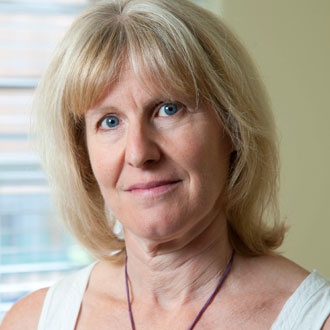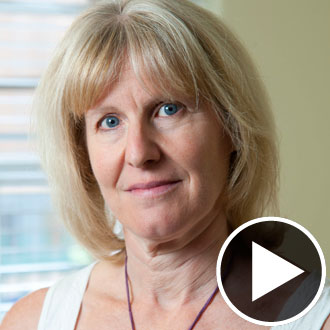
CV
Age: 51
Family: Four children of ages ranging from 16 to 24, the youngest aspiring to be a doctor herself
Education: Trained at Guy’s Hospital and did her general practice vocational training scheme at the Royal London Hospital and at Jubilee Street Practice.
Career: 1992 – present: GP at Jubilee Street Practice, including being a GP tutor. Elected to Tower Hamlets LMC, effective this month
Career high: Leading the east London Save Our Surgeries campaign alongside Jubilee Street practice manager Virginia Patania to secure funding for 22 GP practices at risk of closure because of MPIG funding withdrawal. The campaign has won the support of local patients, MPs and Tower Hamlets Council as well as the RCGP and BMA
Other interests: Frequent attender at the National Theatre, enjoys the ‘rare treat’ of reading a book and is an active member at the local church, where music is ‘another passion’
In the space of just a few months, east London GP Dr Naomi Beer has gone from being a low-profile, hard-working GP partner to spearheading the fight against the destabilisation of general practice in England.
In that time, Dr Beer’s impassioned campaigning has succeeded where official GP representatives have failed since the announcement almost two years that the minimum practice income guarantee (MPIG) would be withdrawn over seven years, in winning support for practices faced with funding cuts.
By mobilising patients onto the streets of the London borough of Tower Hamlets and leading a rally to 10 Downing Street, the Save Our Surgeries campaign has challenged the portrayal of GPs as overpaid profiteers. And it has prompted the Government to take real action, with NHS England last month offering a two-year reprieve to those practices most heavily affected by the seven-year phase-out of the MPIG.
With her dignified and determined approach, Dr Beer has become the human face behind that success – helping the public to understand the plight of practices and how it will eventually affect their ability to see a doctor when they need one.
Concession
While the concession is not exactly what Dr Beer was fighting for – her campaign specifically calls for a long-term funding solution and not a ‘sticking plaster’ – this represents an undeniable victory for GPs and patients in Tower Hamlets.
Dr Beer particularly believes it sends a message to those disheartened GPs who argued when Pulse launched its Stop Practice Closures campaign last month that ‘we should let practices close’ to make the Government learn the hard way how their policies affect their voters.
‘GPs have been backed against the wall and are angry at the position we have all been put in and the way we have been treated. I can understand some people saying, out of desperation, that isn’t it better that some practices fail,’ she says.
‘But I would argue so strongly against that because the practices that initially are going to be affected are serving very vulnerable populations.
‘If you let those practices go you cannot replace the level of care that we are giving and that means that you are condemning a whole group of the population to having a lesser standard of care than they are receiving at the moment. I think that is totally irresponsible and we cannot let it happen.’
With admirable calm, Dr Beer explains how she and her practice manager had to move quickly when they discovered in March – three weeks before she was due to sign her new contract – that the practice would be forced to close within a year on its current level of funding.
They secured a meeting with the NHS England local area team, at which the stark truth emerged that the area team could do nothing at all to help.
‘It was very clear that there was no money and no support because we had already done everything they considered relevant to support ourselves.
‘We are a practice that is already working in a network and that has already trimmed down a lot of our staff to create a good skill-mix and reduce the cost of having a lot of GPs. We have invested heavily in our staff to have a physician’s assistant, a healthcare assistant and highly trained nurses. So we have done pretty much everything we could have done to ensure efficiency.’
Drastic action
Faced with two options of either closing or drastically reducing staff, the practice went with a third – to make as much noise as it could.
After approaching local Labour MP, Jim Fitzpatrick, Dr Beer was amazed when he was able to organise a meeting with health minister Earl Howe and NHS England.
Dr Beer recalls: ‘We presented our very detailed position papers, and Earl Howe was very sympathetic. He said: “Clearly you are an excellent practice, clearly you are delivering a high quality of care. No, I am not sending you back to make more efficiencies because I can see that there aren’t any to be made. I am committed to finding a solution for you”.’
NHS England had originally promised to support practices as it phased in changes to the MPIG, but Pulse later learned that area teams had failed to offer any extra funding to those affected by the swingeing cuts. Dr Beer said a representative from NHS England visited the practice but was only interested in what made their surgery unique.
She says: ‘We felt that this was potentially a rather divisive manoeuvre but we agreed to describe what our practice did, and we let other practices in our area know what was going on.’
That was the last the practice heard from NHS England until last month’s announcement of the two-year reprieve. Despite the U-turn, however, Dr Beer is clear that the fight is not over.
High on her agenda, she says, is to ensure the Government sorts out the Carr-Hill formula, which decides weighting of GP funding based on demographics.
‘Equity is a meaningless word when you are talking just about age and numbers of patients, because that is clearly not the whole picture. Healthcare needs surely depend on how sick your population is. If you’re only basing it on age, and especially patients over 75, and our patients are dying 15 years younger than that, it is very clear that we will be massively disadvantaged.
‘None of this formula actually makes sense.’
Foot-dragging
While the Government began working on the Carr-Hill formula to take account of deprivation back in 2007 and announced a fresh review in 2012, nothing has yet happened to change it and the latest review group had yet to commence its work in earnest on Pulse’s last check.
‘This evidence has been around for some time but, for whatever reason, nothing has changed as yet,’ says Dr Beer. ‘Frankly the Government has shown no interest in areas of deprivation because they have allowed this to happen. They’ve done nothing until we pushed them, absolutely nothing.’
So with one win under her belt, Dr Beer is determined to pursue her battle. Asked if she wishes to add any other messages, she fixes her gaze earnestly and says: ‘I would like to encourage people that it is possible.’
Q&A
What would the effect be if your practice closed?
Patients would lose the personal investment of the partners, doctors and staff, many of whom like myself have been here for many years. I believe we are incredibly efficiently run and give an amazing service with the resources we have had.
What has campaigning cost?
Initially all the GPs in the area put money into a pot. We have even had donations from outside this area – a Pulse reader donated some money – and we’ve had donations from the public on marches and rallies. But it’s mostly people’s time that they are giving. My practice manager and I have devoted a lot of hours to this campaign and I’ve had to keep my clinical focus too.
Have there been difficult decisions?
It was difficult deciding how to explain this to patients without raising fear and anxiety. But we felt it was only fair that patients understood the position and had the choice about what to do. Overwhelmingly they have chosen to support us and stay with us.
Pulse October survey
Take our July 2025 survey to potentially win £1.000 worth of tokens














